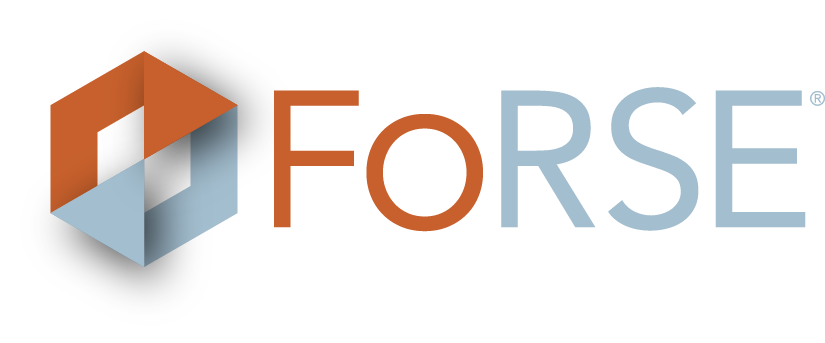AI continues to rapidly expand into the workplace. According to one Pew Research study, about a quarter of workers say they’ve gotten job training related to AI—and many more are concerned about it. More than half of all respondents said they are worried about how AI could be used in the workplace. Mental health professionals feel similarly.
The 2024 Practitioner Pulse Survey from the APA revealed that more psychologists were able to identify concerns with AI use in the workplace than could identify benefits. That includes the nearly 28% who worry about AI replacing human labor.
Is AI replacing therapists?
It’s unlikely that AI will replace therapists. While AI tools can provide support—especially with administrative tasks that can take a major toll on therapists—they don’t provide the human connection that people look for when they’re going to therapy.
Right now, AI tools excel at clear, logical tasks. They organize and summarize data well, rephrase information and make it more accessible, and reduce the time people spend poring over reference materials. AI is not good at nuanced tasks, like having challenging discussions with people, picking up on conversational subtexts, interpreting body language, and distinguishing between helpful and harmful actions—which are all important to therapists working with clients.
Current applications of AI in mental health
AI is already being used in mental health services. And, spoiler alert: it’s not here to take over but to assist.
Transcription
AI excels in automating repetitive administrative tasks. AI-driven transcription tools streamline notetaking during therapy sessions. They record spoken words and transform them into structured documentation, which can save therapists hours of paperwork each week.
Patient screening
The screening process becomes more efficient with AI tools that can help track moods and present and prompt screening forms. Just like with other documentation processes, AI can note trends and automatically organize answers so they’re easier to interpret by human therapists.
Screening tools can be helpful in therapy practices and in public-facing uses. In communities with limited access to mental health professionals, they can help someone identify their mental health risks, offering an entry point to care.
Scheduling
Instead of relying on manual back-and-forth emails with clients, AI scheduling systems can automatically coordinate and confirm sessions based on pre-set and automatically updated availability. Similarly, billing workflows leverage AI to detect coding errors, preventing rejected claims and speeding up reimbursements.
Identifying trends
For behavioral health companies handling hundreds of patients, AI’s data analysis capabilities shine. Machine learning algorithms can identify trends among individual patient records and across entire census populations, lending insights that lead to more effective, evidence-based treatments.
Warning signs
Predictive analytics can track the progress of patients over time, flagging those who might show warning signs of mental health setbacks. For example, patterns in therapy attendance or medication adherence can trigger automatic notifications, allowing professionals intervene before a minor issue becomes a major crisis.
Why is AI limited in therapy settings?
Therapy isn’t just about what is said during sessions; it’s about how it’s said. Nonverbal cues, such as someone’s tone of voice, facial expressions, or even pauses in conversation, are just as—sometimes more—important to pick up on than the words being said.
AI cannot replicate the emotional intelligence that human therapists bring to sessions. It can’t be truly compassionate or encouraging, and it doesn’t have the intuition that comes from years of professional training and personal experience. People who seek out therapy need emotional validation or to seek comfort during moments of vulnerability; human connection is irreplaceable.
There are also ethical concerns
AI in mental health also raises ethical questions:
- Will data used in AI tools be kept private if it contains protected and/or sensitive patient information?
- How are AI models trained? Is there inherent cultural bias in the data sets it interpreted? Are there enough diverse data sets to truly train AI models?
- Can AI de-escalate crisis situations? Will they provide accurate crisis information and follow-up to ensure someone gets the help they need?
- Are AI models sophisticated enough to challenge someone’s thoughts? Or will they just affirm their beliefs even if they’re biased or harmful?
Human communication, connection, and behavior are extremely nuanced and complex. AI just does not have the same capabilities that human therapists do to deliver compassionate, appropriate care.
How you can start using AI
AI isn’t likely to slow down, and you’ll probably see a flood of new tools being developed and released in the coming years. Here’s how you can start using AI in sensible, ethical ways:
- Embrace AI as a support tool: Handle administrative tasks, such as scheduling, reminders, and follow-ups, to free up more time for patient care.
- Leverage AI for insights: Analyze patterns in client behavior and treatment effectiveness, helping you plan more effective sessions.
- Choose AI-integrated platforms: Consider adopting business management platforms with built-in AI assistance to streamline operations and reduce paperwork, enabling more focus on therapeutic relationships.
- Prioritize data security: Ensure any AI tools you use comply with regulations like HIPAA to protect patient privacy and maintain ethical standards.
- Focus on the human connection: Use AI to complement, not replace, your expertise in empathy, emotional intelligence, and cultural understanding, which are critical in therapy.
- Advocate for ethical AI use: Promote discussions about the ethical use of AI in mental health to ensure it remains a beneficial tool for both therapists and patients.
The best news is that you don’t have to be a tech pro to start using AI today. Many tools are user-friendly, and some even work directly with the software you already use. Sunwave Health makes AI assistance easy with MARA, the Mental-Health Artificial Reasoning Agent.
MARA makes mental health care easier
MARA is more than just a tool—it’s a breakthrough. MARA does the work for you so you can focus on what truly matters: delivering better care. From group and individual notes to biopsychosocials, history and physical records, and form completion, MARA reduces your administrative load. It works directly in several Sunwave modules, including our electronic records management platform designed specifically for behavioral health care providers.
Schedule a demo online or call 561.576.6037 to find out how AI can change the way you work.



